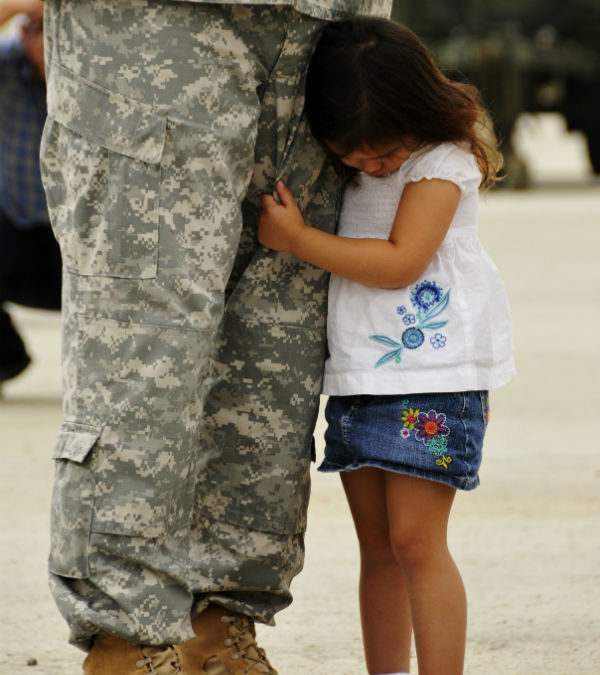Saying goodbye is never easy. This is something military families know all too well. For the 2.7 million Americans who serve in the Armed Forces, saying goodbye to loved ones can be a frequent and emotional experience. Learning how to deal with deployment is a challenge on its own, for the deployed and their families. If you are among this group, the first thing to remember is: you are not alone! There are many online communities for military families who need advice and support. Family & Child Development recommends Military OneSource as an informative resource.
Before Deployment
Saying goodbye to the deployed parent/partner may make the stay-at-home spouse and children feel alone, overwhelmed and afraid. That’s why it’s very important to prepare the entire family for deployment before it occurs. You and your partner should discuss how the deployment will affect finances, household duties, your family and your personal relationship.
Being a single parent, even in short bursts, can be taxing. So get your ducks in a row before deployment.
- Consider hiring a nanny, a house cleaner or someone to do yard work so you aren’t overwhelmed.
- Designate emergency contacts in case you cannot be reached. Inform the school and anyone who will be looking after your child about these contacts.
- Reach out to family members, friends and other military families for support and advice.
- Make a plan for communication after deployment: What will be realistic and possible? Can you Skype, make phone calls, write letters or e-mails?
- Prepare your children for scheduled communication with their other parent. You can print a calendar and keep it somewhere visible so your children can follow and prepare for the days they’ll see or speak to their other parent.
After Deployment
After your loved one has deployed, you may be anxious and afraid for their safety. Remember that it’s not in your power to keep them safe. The best thing to do is focus on what you can control, like maintaining communication and trust. The deployed partner will likely feel just as alone and afraid for their loved ones well-being. They may worry about becoming disconnected from their family after a long deployment.
Remedy this fear of disconnection as best as you can.
- Never miss a chance to contact your loved one.
- Get creative with letters and e-mails. You can send artwork, poems, photos and videos.
- Keep journals about what’s happening in your daily lives. When your partner returns, they can read them with you and feel as if they didn’t miss out on those events.
- Remind them they are loved and missed.
Reintegration
When deployment ends it will bring a big change to your family’s daily life. Accept that this will be an emotional time for everyone, but prepare for it as best as you can.
- Communicate with your children about the changes that will come with the deployed parent returning home.
- Plan fun activities to do as a family.
- Make adjustments as needed. Just because things worked one way prior to deployment, doesn’t mean they will still work that way post-deployment.
- Express and deal with your emotions. If the emotional stress is getting out of control, reach out to family, friends or consider speaking to a family therapist.
If you are still adjusting to life in a military family, you may find, “12 Can’t Miss Resources for Military Parents” helpful, as well as: “8 Tips for Managing Stress for Service Members.”
Reach out to us at Family & Child Development if you have any questions.

